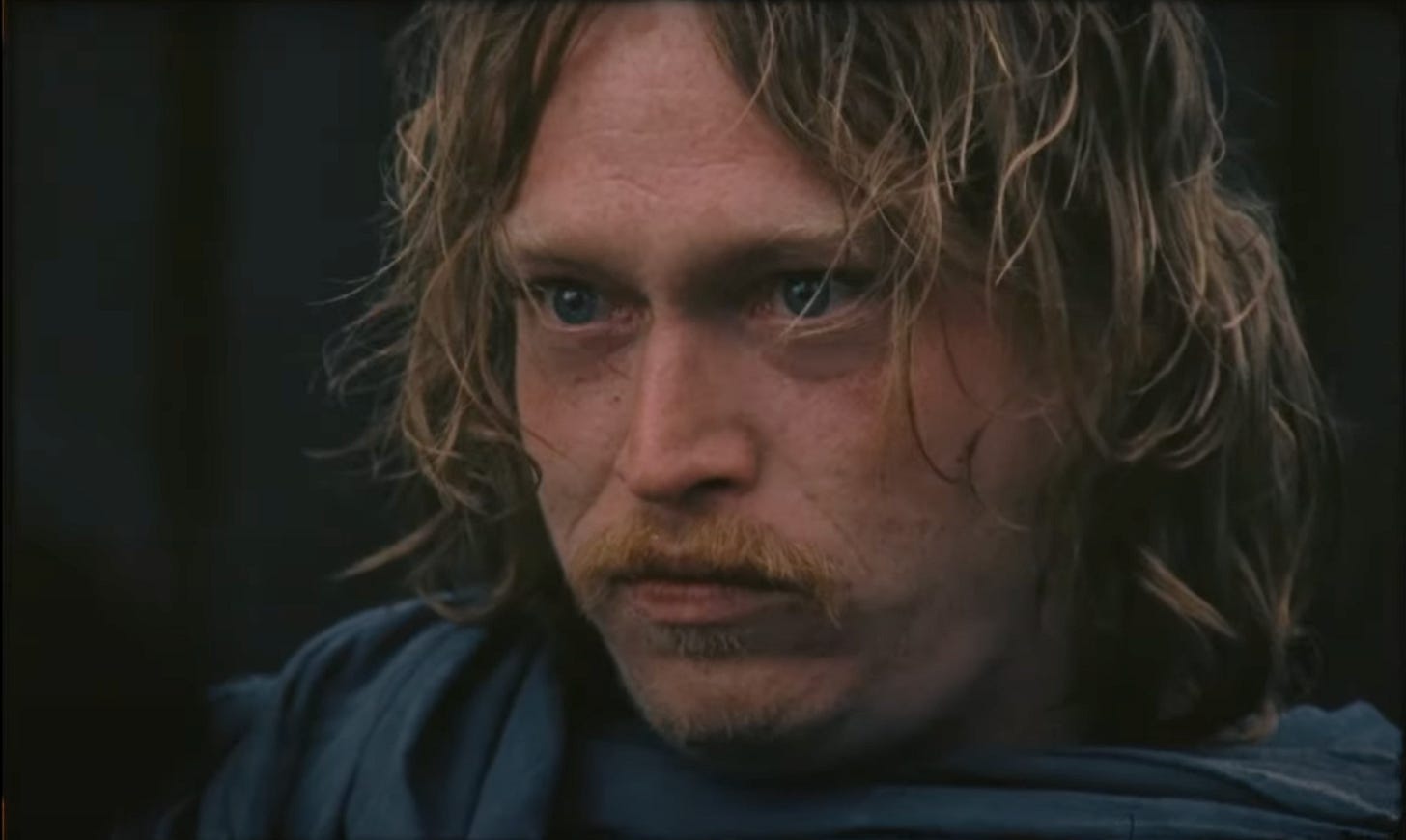An eventful week in the waning days of a medieval English village provides the narrative backbone for Harvest, Athina Rachel Tsangari’s moody-verging-on-mopish adaptation of Jim Crace’s novel of the same name. The book is written in a bewitching prose style somewhere between a monologue and a first-person essay. Dialogue is sparse, much of it denoted as overheard half-phrases, and the overall ambience alien, which is more than apt for a setting — a lord-of-the-manor-ruled agricultural collective — effectively lost to time.
Tsangari, who co-wrote the screenplay with Joslyn Barnes, finds her own way into this foreign land by accentuating the grit and the grime. This is evident in everything from Sean Price Williams’s grainy 16mm cinematography (some sort of crud is always visible at the edges of the frame) to the lead casting of Caleb Landry Jones, a performer who often seems like he’s just emerged dazed and confused from primordial sludge. In Harvest, Jones plays Walter Thirsk, a scatterbrained village manservant introduced walking the fields, swimming naked in an idyllic glade and, at one point, taking a hungry bite out of a loamy tree branch. It’s easy to see him as an avatar for Adam wandering Eden, which of course augurs an eventual exile.
The baleful signs and portents begin with an inferno, when the village barn is mysteriously incinerated. In the chaos, Thirsk’s hand is burned, rendering it mostly useless. Suspicion for the arson falls on a trio of strangers, Mistress Beldam (Thalissa Teixeira) and her male companions (Noor Dillan-Night and Gary Maitland). The gents are confined to the stocks in the town square (one of them eventually has their leg half-devoured by a ravenous hog), while the lady is shorn of her flowing locks and cast into the wilderness where she wanders with witchy abandon.
Problem not solved, for the general aura of paranoia and mistrust remains.


